“I couldn't speak” – 3 women share what their life is like after a stroke
One in five women will have a stroke at some point in their lives. Three women who experienced them tell us their experiences and how they're doing now

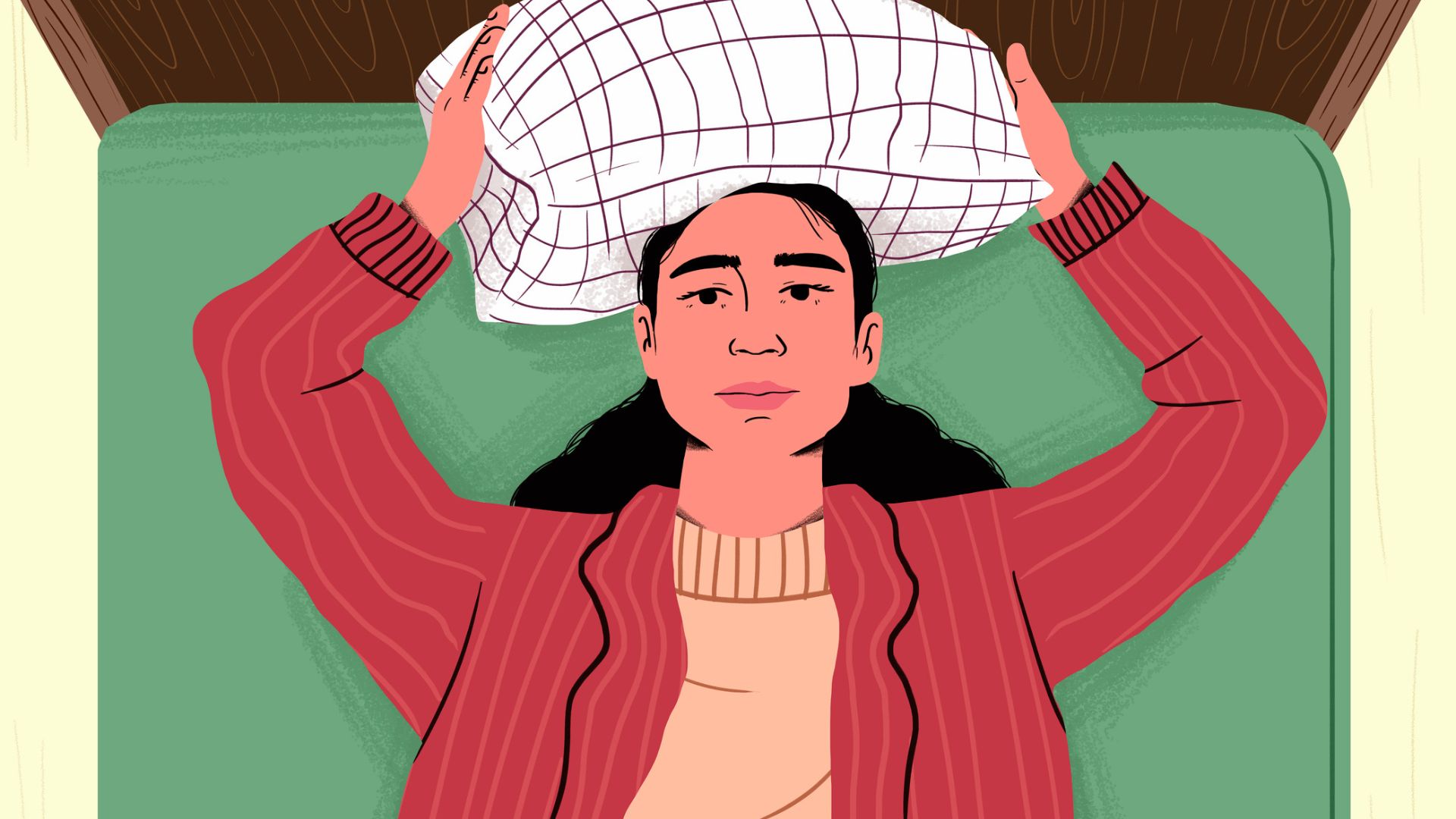
Sign up to our free daily email for the latest royal and entertainment news, interesting opinion, expert advice on styling and beauty trends, and no-nonsense guides to the health and wellness questions you want answered.
You are now subscribed
Your newsletter sign-up was successful
Want to add more newsletters?
Stroke is one of the leading causes of death in women, but it's often hushed about in social circles, the taboo topic everyone, especially women of a certain age, fears but nobody dares to talk about.
But perhaps in opening ourselves up to hear the experiences of women who've had strokes, we'll be prepared for what to do if we or someone close to us has one.
Every 40 seconds, someone in the US has a stroke (every five minutes in the UK), when the blood supply to part of the brain is cut off, killing brain cells.
An often-overlooked and under-recognized women’s health issue, strokes are more common among women than they are among men.
One in five women will have a stroke at some point in their lives, with 70 percent of all strokes occurring in people over 65. However, one in four strokes happens in people of working age.
Have you ever had a niggling fear of how you'd cope if you ever have a stroke? And what life could look like after?
We spoke to three women who described the impacts of stroke on their lives and told us why recognizing the signs is vital for getting immediate emergency care.
Sign up to our free daily email for the latest royal and entertainment news, interesting opinion, expert advice on styling and beauty trends, and no-nonsense guides to the health and wellness questions you want answered.
Induced coma
After taking her dog for a walk, Alicija Faryniarz , then 43, an active woman from Cobham, UK, headed to her local tennis court to play a game with a friend.
“As my tennis partner was about to serve, I turned my head around and all of a sudden, I felt a massive headache,” she tells us.
“It was something out of this world, like nothing I had ever felt. I dropped to the floor in slow motion and couldn’t speak or move. I was petrified.
“People rushed to see me. Tears came to my eyes, but I couldn’t make a sound. There was a doctor on the scene and she was certain of what happened. She told the emergency services call handler I was having a stroke. But it took almost two hours for an ambulance to arrive.
“I was put into an induced coma to save my life.”
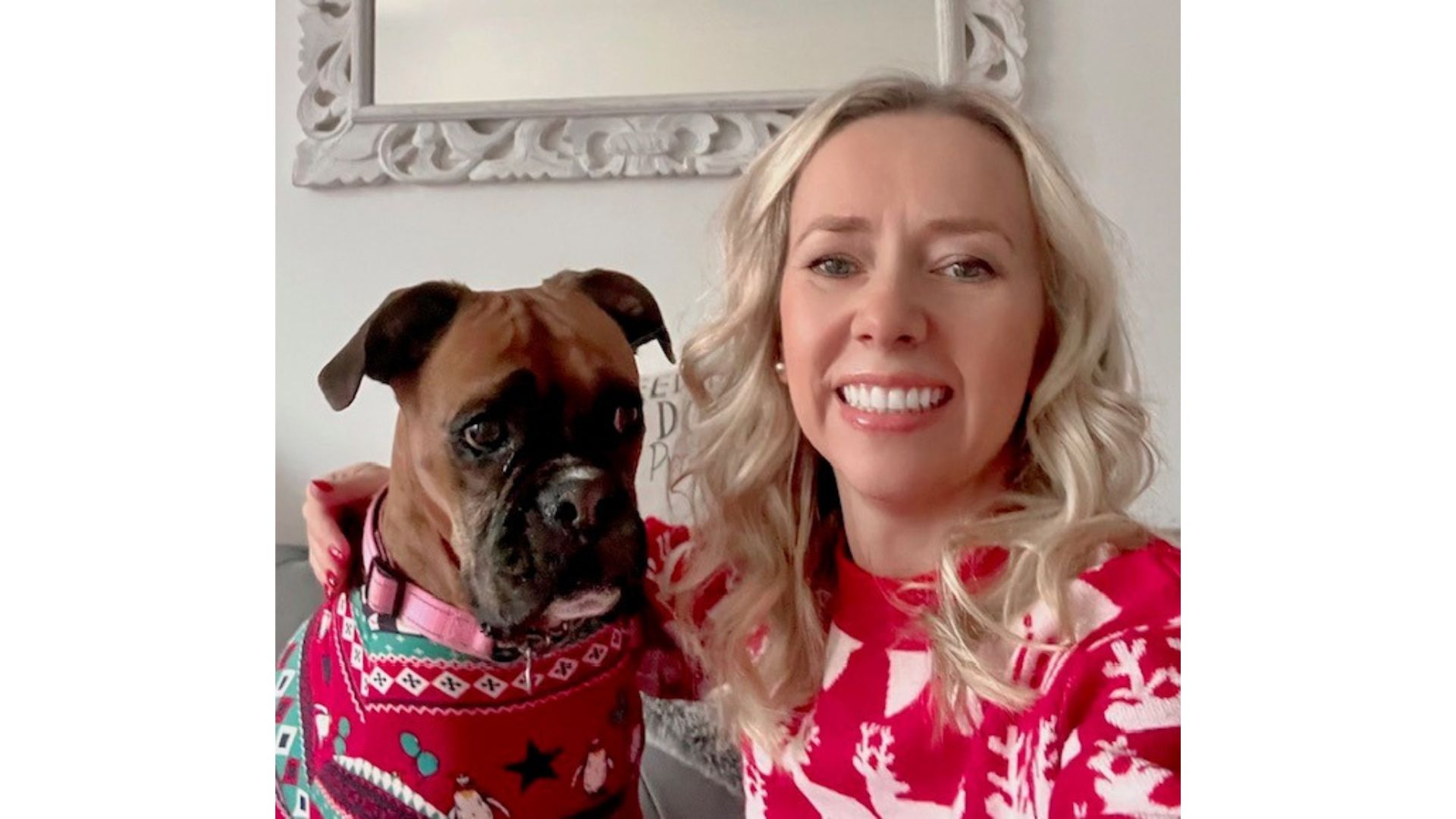
Alicja Faryniarz and her dog Roxy
“When I regained consciousness, it was a total shock. I couldn’t see properly with my right eye. The whole right side of my body was paralyzed – I couldn’t even feel my right leg.
"I couldn’t speak well – just mumbles coming out of my mouth. I was vomiting all over the place. I had a lot of pain, too, but didn’t understand what was happening because my memory of what happened was so vague.
“After three days in intensive care, I was moved to a neurological department for nearly three weeks.”
Unable to walk independently
Alicija found out later her stroke had been caused by abnormally tangled blood vessels.
“At some point, either because of stress or elevated blood pressure, the blood vessels became too weak, and blood flooded my brain.
“I’ve lost everything I had. I’m quite severely disabled and can’t walk independently. Every day is a struggle. I’m just hanging on. The main reason to keep on going is my dog, Roxie.”
To anyone who might fear something isn’t right, Alicija says to “follow your gut.”
“I knew something was wrong and I just couldn’t get help.”
Loss of speech
While working one of her two jobs, Kelly Holmes, 53, a grandmother of four from Norfolk, UK, noticed her speech was going a 'bit funny' and that she was suddenly quite confused.
She asked a colleague to give her a ride home, and thinking she was ill, took an aspirin and went to bed.
“We waited until the next morning and went to the doctor,” she tells us. “They sent us straight to the hospital. At the hospital, I could talk perfectly well, but my blood pressure was sky-high. After an hour, I deteriorated, having another stroke. They rushed me to get a brain scan."
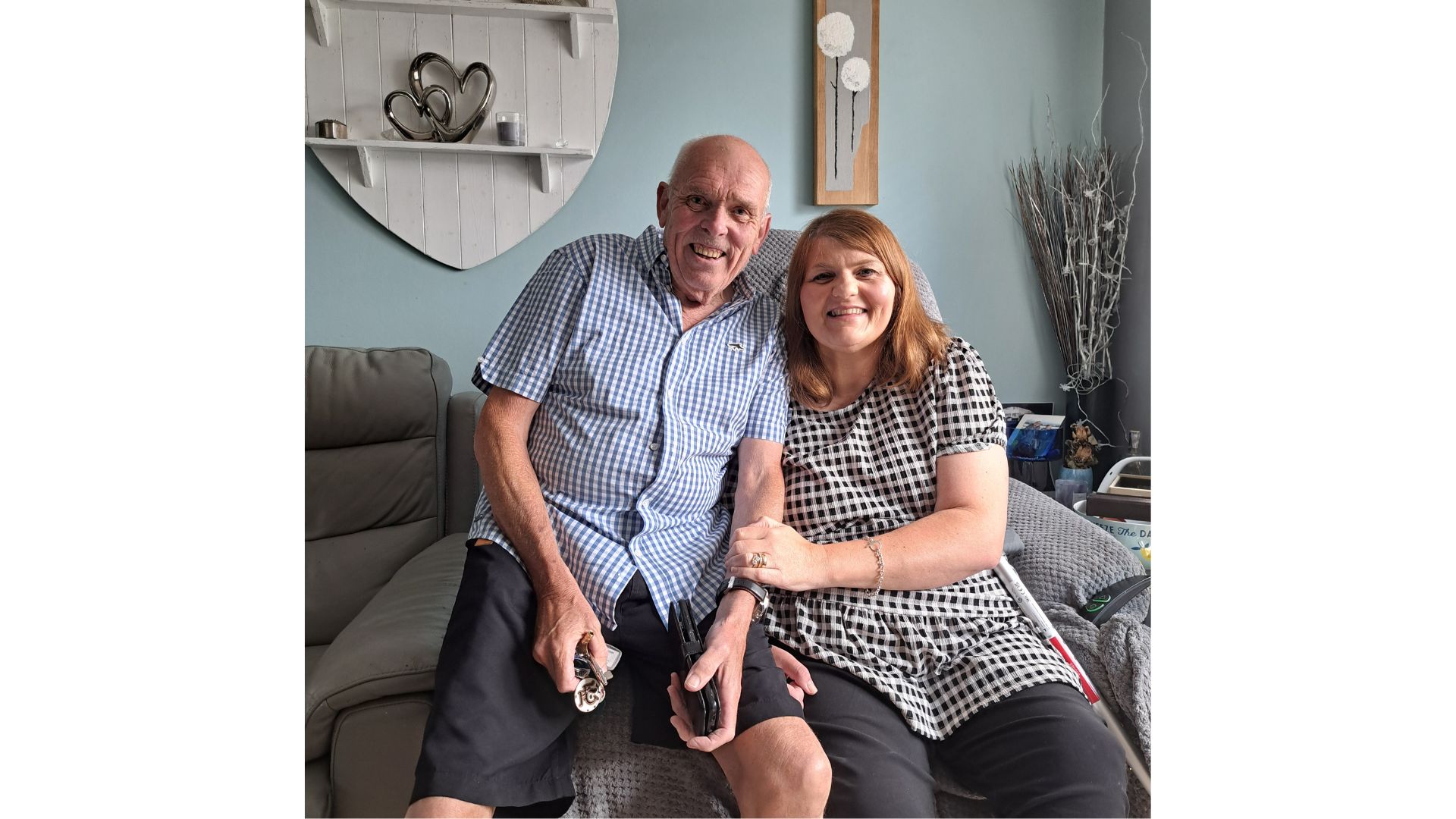
Kelly Holmes and her partner
"My voice completely went. I couldn’t walk or talk for another two weeks.”
Following hospital, Kelly stayed in a rehab center for three months. She was unable to do anything on her own including getting dressed, eating, walking, and washing.
“I felt I would have been better at home. The center was short-staffed. What they did was good, but there wasn’t enough of it.”
At times, Kelly even considered taking her own life. “I thought it would be much better for everyone if I wasn’t alive.”
Community support
But after meeting other people who had also had strokes, through a support group with the charity Stroke Association, Kelly felt a renewed sense of hope – she still had lots of life to live.
“I found people who understood me. Other people had problems with their talking as well.
"I’ve been going to an online singing group – singing is easier than speaking – and doing art."
Juliet Bouverie OBE, CEO of the Stroke Association, says, “The impact of a stroke can be completely life-altering. Singing can be a powerful tool in stroke recovery for those who experience communication difficulties. Because music and singing are processed in a different part of the brain to spoken language, some people with communication problems find that they can sing easily, even though speaking is difficult.”
Kelly continues, "I want to stay alive for my family – my husband, my children, and grandchildren. They have kept me going on the hard days.”
After her stroke and her slow recovery, Kelly has a new appreciation for life, saying now, it’s “too short.”
Functioning again but easily exhausted
Tanya Cox, 52, is a single mother to a teenager and young adult in Bedfordshire, UK. She had a stroke in January 2024 when a blood clot in her neck moved into her brain.
“As I climbed the stairs one morning, I went a bit dizzy for three seconds,” she tells us. “I ignored it and felt fine until early evening, when my partner at the time told me my speech sounded slurred. When I went to stand, I couldn’t. I just assumed I was tired, so went to bed.
“I had a fleeting thought it could be a stroke, but told myself I was too young.
“The next morning, I couldn’t walk. I told my kids I was in trouble, and they said they thought I had had a stroke, and called the ambulance. I laid on the bed crying.”
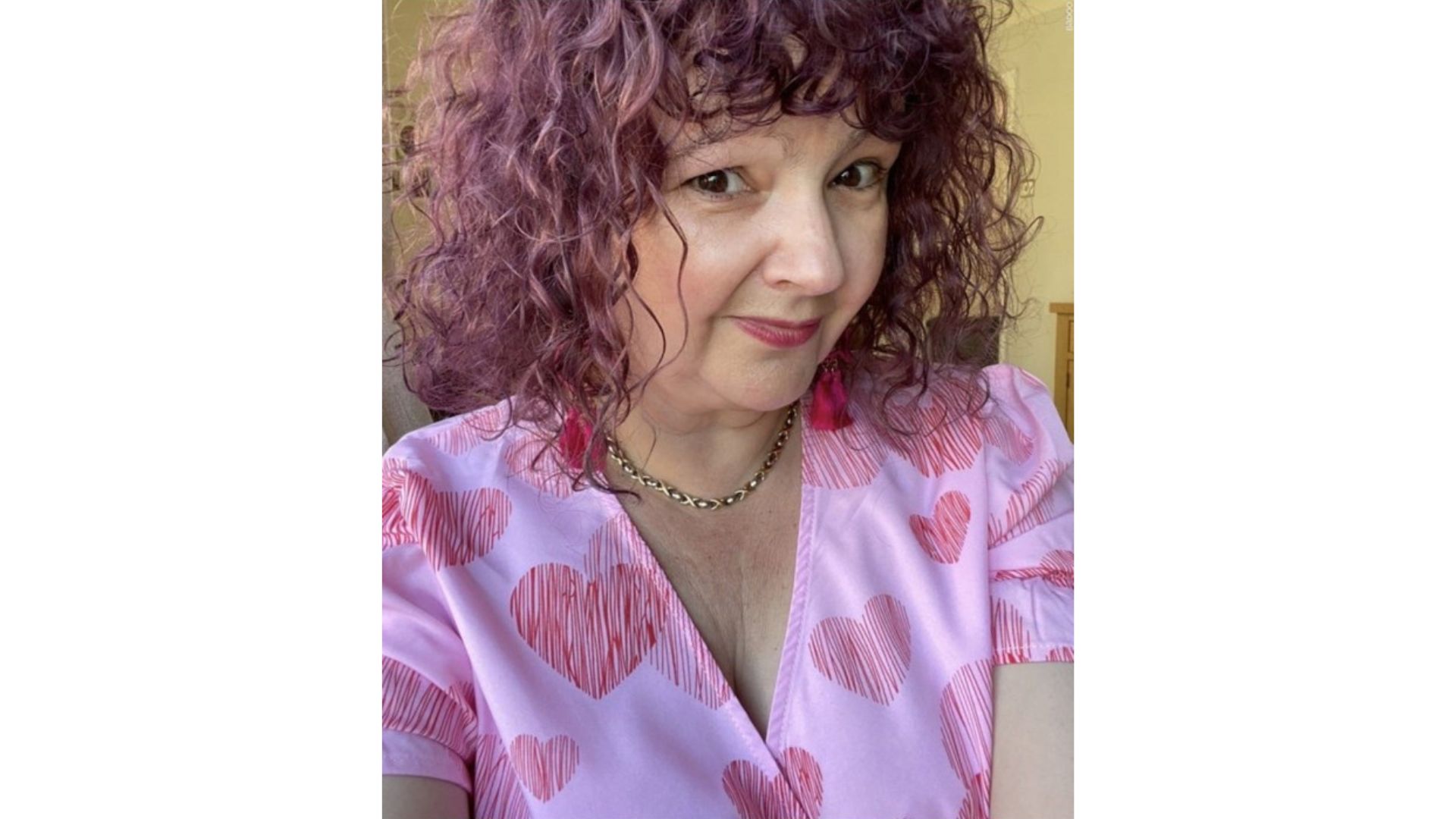
Tanya Cox
“The ambulance driver told me I may not walk again. I remember thinking he was wrong. The mind can overcome a lot of things.
“After a few days in hospital, I went to a respite care home for nine weeks.
"A lot of people take themselves to their beds after a stroke and don’t want to move, but I just kept thinking positively. If I did what they said in rehab, I would get better. I wouldn’t allow myself to get depressed.
“When I got home, the dynamics changed. I had to rely on my children in the beginning. I couldn’t do silly things like move the laundry basket, lift a saucepan of water, or put socks on.
“I haven’t looked at going back to work because I struggle on a daily basis with utter exhaustion. I’m up and about but only have to do a couple of things and I’m exhausted."
Impact on sleep
"The stroke has affected my sleep as well. In the beginning, I remember just wanting to be able to sleep, but couldn’t," continues Tanya.
"I fall over a lot.
“Since the original stroke, I’ve had two more strokes and six ‘mimic’ strokes."
This is, sadly, relatively common. The Stroke Association warns that the risk of having a stroke is higher if you have already had one, but making certain lifestyle changes, such as getting regular exercise and eating healthily, can reduce this risk.
“I do feel down at times, when I can’t do things, but the stroke has brought out a resilience in me I didn’t know I had.
“I think women are notoriously bad for not making a fuss. But if you’ve seen the signs – if something isn’t right – then take action.”
Stroke warning signs
The FAST campaign highlights the most common signs of a stroke. If someone has any of the following symptoms, it’s vital to ring emergency services right away:
• Face – has their face fallen on one side? Can they smile?
• Arms – can they raise both arms and keep them there?
• Speech – is their speech slurred?
• Time – call for an ambulance immediately
Other stroke symptoms may include: numbness or weakness of the face or limbs, especially on one side of the body; confusion or slurred speech; trouble seeing; trouble walking; severe headache.
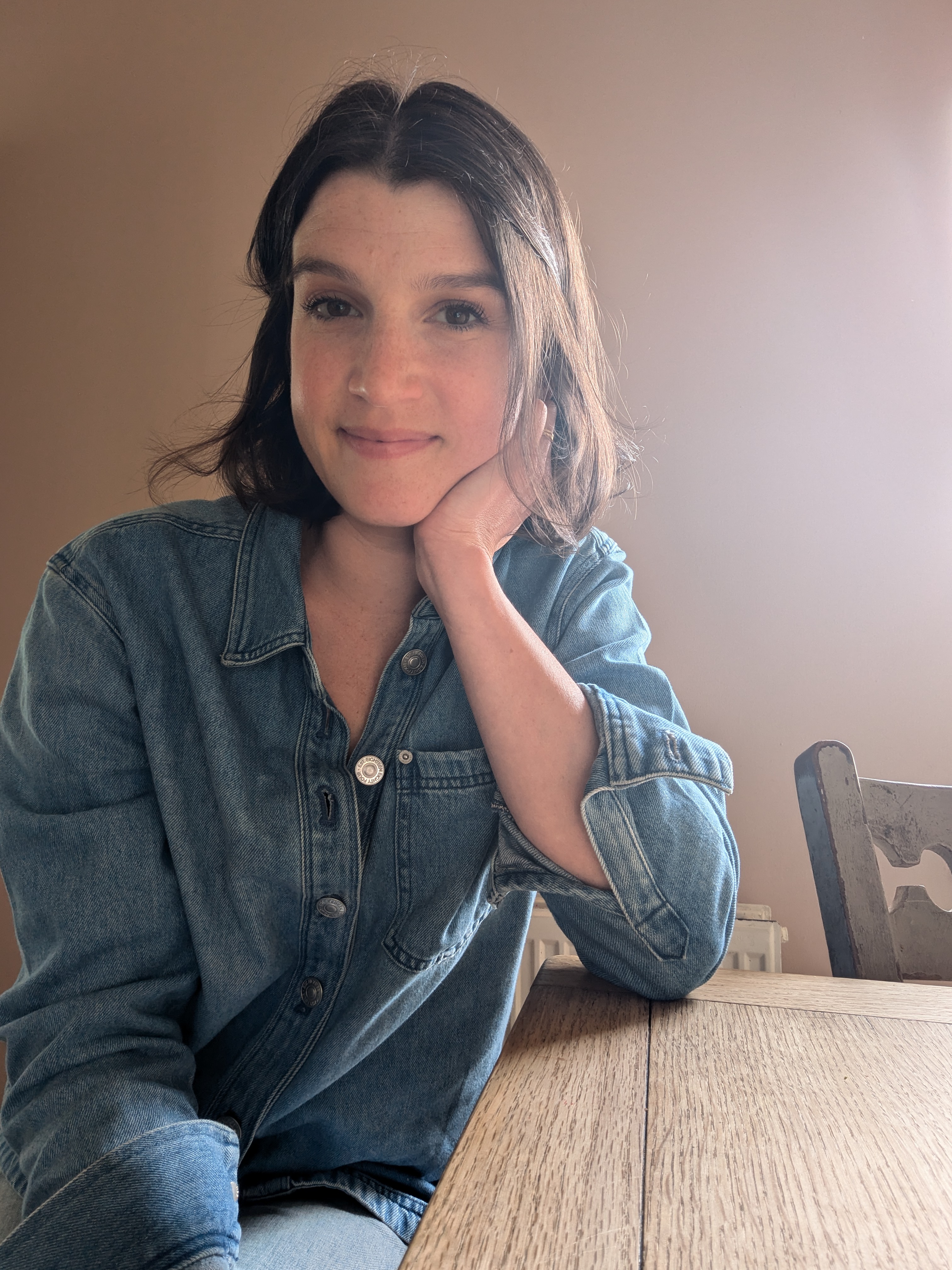
Lauren Crosby Medlicott is a freelance journalist based in Wales.
When she isn't writing, she's either having a cappuccino, chasing after her three kids, walking in the mountains, or buried in a book.